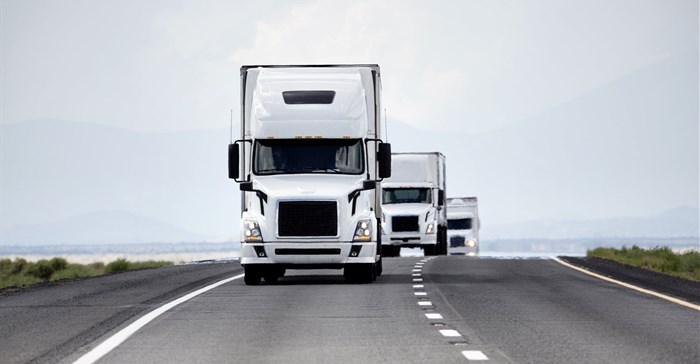South Africa has one of the largest total road networks in Africa, and as such, its road freight industry plays a vital role in mobilising goods, optimising operational efficienciencies and contributing to the economy. Building a resilient transport or logistics business therefore relies on the ability to employ risk management strategies that consider the unique challenges of truck drivers on South African roads, says Karen Rimmer, head of distribution at PSG Insure.
Rimmer emphasises the importance of proper fleet maintenance, backed by an insurance policy that is tailored to the nature and unique needs of the transporting business by providing insight into what trucking companies need to know about protecting and managing their fleet. "Trucking insurance involves navigating a complex risk landscape with several variables and moving parts. This is compounded by a fragile labour force that faces many issues.
"The maximum probable loss on a truck is vastly different to that of a normal vehicle, both in terms of scope and nature. These are the aspects that specialist insurers will take into account when structuring a policy and advising fleet owners on how to avoid costly incidents involving multiple levels of liability,” explains Rimmer.
Securing adequate fleet insurance
Trucking companies also require a bespoke level of service, as policies will vary greatly depending on the distance travelled by each vehicle, whether travel is cross-border or short-haul, as well as the age and condition of the fleet. Other factors that influence the nature and cost of a policy will include the nature of the commodities being transported, the client’s security and operational controls and the working hours of drivers.
The above details will have bearing on the level of cover that is needed and in the process of advising clients, advisers will consider multiple liabilities. A fully comprehensive policy for a truck for example, will cover liabilities such as third-party, fire and theft, goods in transit (GIT), marine carriers and environmental clean-up. Possible policy extensions will cover aspects such as refrigeration systems for closed body trucks, added machinery such as cranes and lifts, as well as cover for camera and telematics systems, which are required by all insurers.
However, as Rimmer asserts, it is equally as important for fleet owners to take out adequate insurance as it for them to implement formal risk management policies and procedures. This, as she explains, involves two crucial aspects – the upkeep of the vehicles and the effective management of drivers and their wellbeing.
“Fleet owners are often made aware of the importance of vehicle and technology maintenance and regular roadworthiness checks. However, we recommend that trucking companies approach risk management both in terms of ‘hardware’ and ‘human capital’.
This should include a few ‘non-negotiables,’ such as a zero-tolerance policy on the use of mobile phones while driving or the picking up of passengers en route. "It is also important that drivers are correctly trained and have valid licenses and professional driving permits. Driver contracts also need to include the need for regular breaks at accredited truck stops,” says Rimmer.
Tailoring business models for growth
Vehicle fleet insurance should also never be thought of as a “once-off” or “static” agreement, says Rimmer. Instead, policies should be regularly updated and reviewed to ensure that the level and nature of cover evolves along with the fleet’s growth and development.
For this reason, truck owners need to conduct annual reviews with their advisers and provide updated lists of commodities being transported. In addition, companies also need to provide their insurer with the details of any driver training programmes (which can assist in motivating competitive premiums) as well as accurate records of licenses and permits. The value of trailers also needs be regularly updated according to market fluctuations.
Rimmer concludes: “Trucking insurance is considered a specialist class of cover due to the complexities and differences in how fleets are managed and maintained. There is therefore no one-size-fits-all solution to insurance for the transport industry. Fleet owners are urged to ensure that their advisers are well-versed on the unique risks that face the industry as well as how their policy can be tailored to meet the needs of their business model.”















































